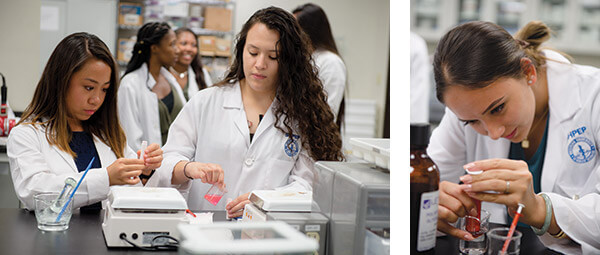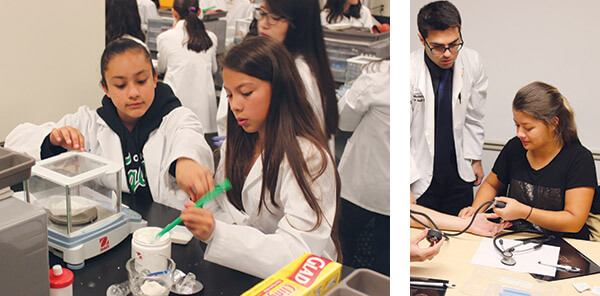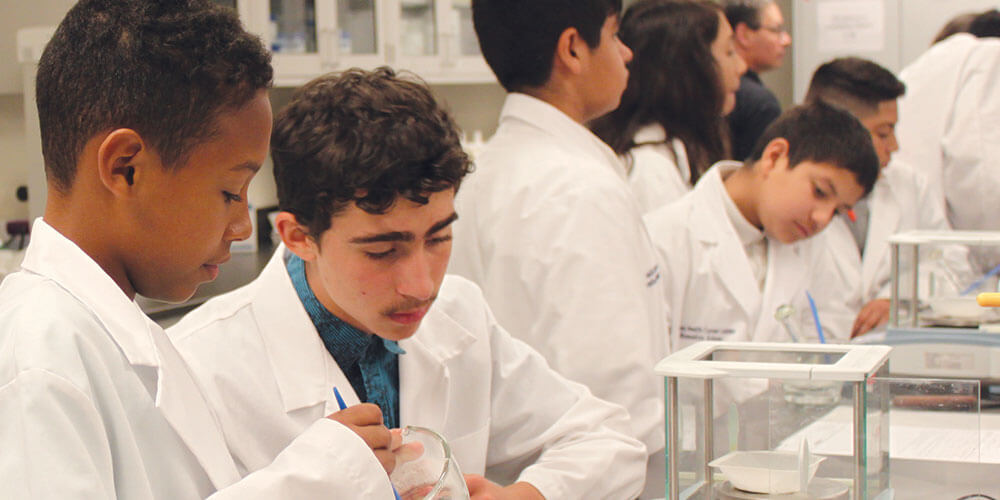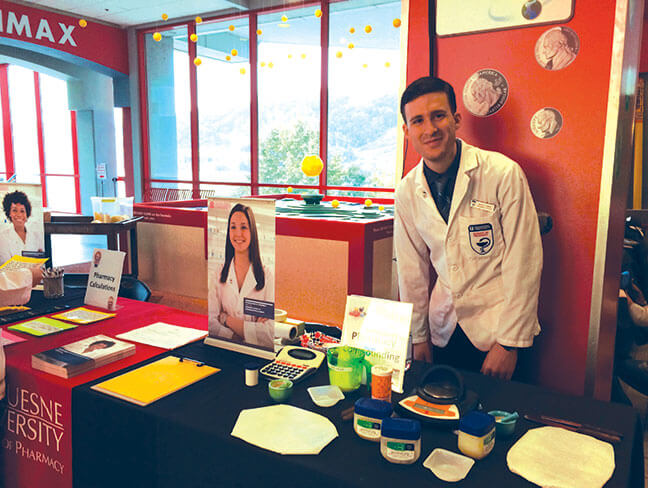Making STEM a Success
At Duquesne University School of Pharmacy, efforts are in place to attract young students with an interest in science and math to the pharmacy profession, said Dr. Janet K. Astle, assistant dean for student services.
Three programs offer these young students the opportunity to help shape the future of the profession: the Carnegie Science Center Williams’ Girls Rock Science Weekend, the Carnegie Science Center Tour Your Future event, and engagement with the Phi Lambda Sigma professional honorary pharmacy leadership society.
For two days in September, the School of Pharmacy hosted a table sponsored by Giant Eagle Pharmacy at the Williams’ Girls Rock Science Weekend, which is sponsored by the Carnegie Science Center. Girls from local elementary, middle, and high schools who are interested in STEM careers—everything from pharmacy to meteorology to robotics—visited with organizations to learn more about the various fields. Duquesne’s P3 students helped the girls complete some of the tasks a pharmacist would perform, such as compounding an ointment and calculating math problems based on a patient’s scenario. For example, the girls were presented with a case of an 8 year-old boy who was stung by a bee. Minutes later he has trouble breathing. They’re given the option of selecting an EpiPen® or EpiPen Jr®, with corresponding weight ranges in kilograms. Knowing that the patient weighs 63 lbs., they had to convert the weight to kgs and determine which product is best to use. For the younger girls, trying on white coats and listening to their own heartbeat using stethoscopes were popular activities, said Astle.
The Girls Rock weekend was such a success that the School of Pharmacy was asked to participate in the Carnegie Science Center Tour Your Future event. This half-day workshop provided the opportunity for girls to explore STEM careers in-depth. Fifteen participants, ages 12–17, signed up to spend a half-day on the Duquesne University campus where faculty walked the student visitors through the role a pharmacist plays in a mock emergency room situation. Faculty further demonstrated a SIM man experiencing an asthma attack and how his response changed once the appropriate medication was administered. Some of the girls were overheard saying, ‘Wow, I didn’t know pharmacists could do all this,’ Astle noted. “It really did open their eyes and they left excited about the possibilities,” she said. Astle added that the feedback from Carnegie was also very positive, and she is eager to participate again next year.
Meeting young students in their current classrooms is also important to the recruitment efforts. The School of Pharmacy has engaged its Phi Lambda Sigma honorary leadership society members to visit local middle and high schools to deliver interactive presentations about pharmacy as a career.
Athena Ponushis is a freelance writer based in Ft. Lauderdale, Florida.
Maureen Thielemans is Associate Director of Communications at AACP
and editor of Academic Pharmacy Now.




